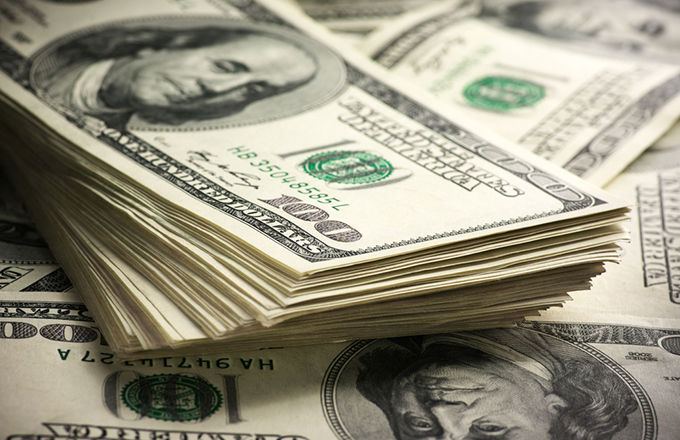
Philippines’ FDI inflow hits record high in 2016
THE PHILIPPINES received a record $7.93 billion in actual foreign direct investment (FDI) last year, as sound macroeconomic fundamentals overshadowed the uncertainties brought about by leadership changes within and outside the country.
The net inflow of foreign direct investments (FDIs) soared 40.7% above the $5.64 billion recorded for 2015, according to preliminary data released by the Bangko Sentral ng Pilipinas (BSP) on Friday.
The yearend result surpassed by 18.4% the $6.7 billion projected by the central bank. The forecast represented a new high in itself.
Intercompany borrowings accounted for more than 65% of last year’s net inflow, as foreign firms placed $5.19 billion -- 68.6% over the $3.08 billion recorded in 2015 -- in debt instruments of Philippine subsidiaries and affiliates.
Equity and investment fund shares accounted for $2.75 billion, a 7.1% increase from the $2.56 billion booked in 2015. Net equity infusion rose 12% to $2.04 billion from $1.82 billion, making up for the 4.9% decrease in reinvestment of earnings to $710 million from $747 million.
In December alone, the net FDI inflow more than doubled to $669 million from the $272 million registered in the comparable 2015 period.
More than half or $415 million of the net inflow in December came from placements in debt instruments. Lending to Philippine subsidiaries or affiliates almost tripled from the $139 million reported a year earlier.
Investments in equity and investment fund shares nearly doubled to $254 million from $133 million. Net equity capital infusion surged 2.7 times to $206 million from $77 million, offsetting the 16.1% drop in reinvestment of earnings to $47 million from $56 million.
Investors from Japan, Hong Kong, Singapore, the United States and Taiwan made most of the equity infusions largely to financial and insurance; arts, entertainment and recreation; manufacturing; real estate; and construction activities.
“FDI inflows remained robust, supported by strong investors’ confidence in the country’s solid macroeconomic fundamentals,” the BSP noted in a statement accompanying the data.
“NO FLUKE”
In separate e-mail interviews, economists noted how the growth story of the domestic economy cancelled out concerns over possible changes in policy direction both in the Philippines and its major trading partner, the US.
“It is clear that the Philippine economic growth story is intact despite all the uncertainties of US policies and the continuous noise of domestic politics,” Ruben Carlo O. Asuncion, chief economist of the Union Bank of the Philippines, noted in an e-mailed correspondence.
Mr. Asuncion had expected net FDIs to the Philippines to grow slower and reach at least $7 billion toward the yearend.
“This significant growth, I believe, is on the back of solid macroeconomic fundamentals for the past 18 years or 72 quarters. This clearly means that the Philippines’ growth story is no fluke. Foreign investors recognize this observation with the 40.7% FDI growth for 2016,” Mr. Asuncion said.
Guian Angelo S. Dumalagan, market economist at Land Bank of the Philippines, cited the bright prospects for the Philippine economy as well.
“Last year, FDI inflows were affected by the country’s political transition and the US presidential election. These factors, however, were not enough to overshadow the country’s strong economic prospects,” Mr. Dumalagan said.
Foreign investors have nevertheless raised concerns over inefficient government bureaucracy, inadequate supply of infrastructure, corruption and tax regulations last year, another economist noted, citing The Global Competitiveness Report 2016-2017 of the World Economic Forum (WEF).
“I also cite infrastructure as one of the most compelling reasons why it’s difficult to commit to investing in the Philippines,” the economist said.
“Imagine setting up a manufacturing plant here only to find out we have one of the most expensive and unreliable electricity, highways are bogged down in traffic, airports have only 1.5 runways and flooding is a problem in the region’s worst port system,” the economist added.
The economist further noted the retreat of the Philippines by 10 notches in the Global Competitiveness Index, ranking 57th out of 138 economies covered in the report released by the WEF three months after President Rodrigo R. Duterte took office in end-June 2016.
“Investors now have a stark concern about the level of institutions in the country going forward. This moves hand in hand with the upholding of the rule of law, which can get foreign players a little bit concerned,” the economist said.
Landbank’s Mr. Dumalagan, however, expects the Philippines to continue registering net FDI inflows this year on the sustained strength of the domestic economy along with the improving economic conditions abroad.
“Japan and the US, two of the country’s major sources of FDIs, are expected to show stronger growth this year, suggesting potentially ample investable funds from these economic giants despite possibly lesser monetary accommodation from the Bank of Japan and the US Federal Reserve,” Mr. Dumalagan said.
“The protectionist stance of the new US administration, however, poses a risk, as it could potentially reduce the amount of capital inflows from the US.”
FDIs in the Philippines, by Reuters’ reckoning, are minuscule compared with that in regional peers due to poor infrastructure, high power costs and foreign ownership restrictions in key industries. - Business World Online












